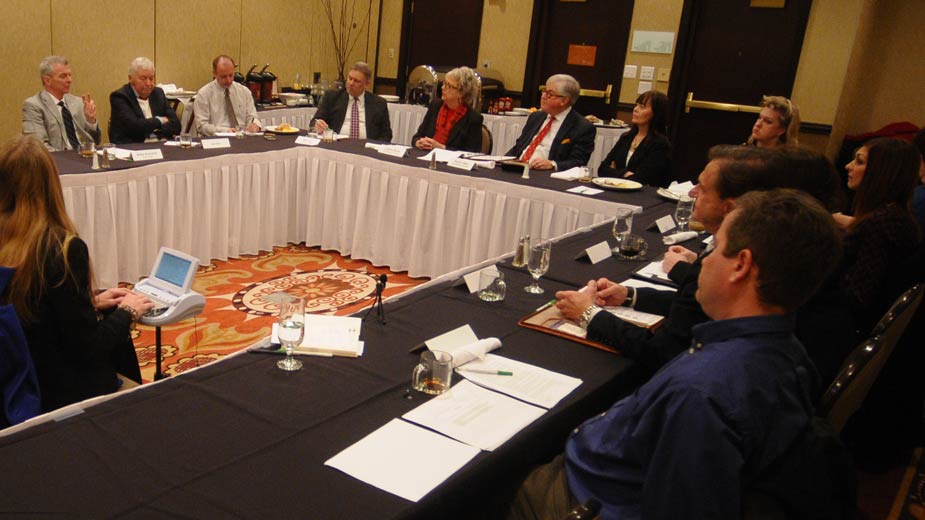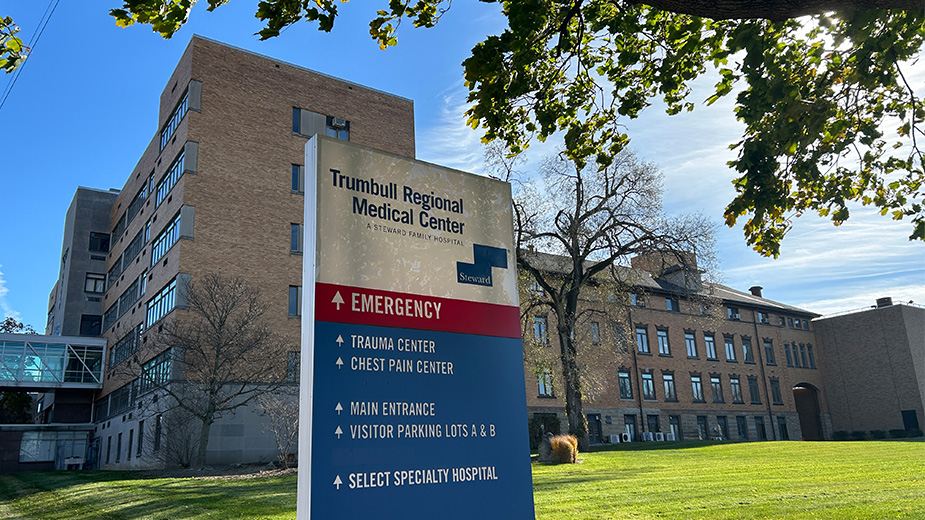Specialists Discuss Aging Strategies at Roundtable
BOARDMAN, Ohio – The quality of life in a person’s later years almost always depends on how well that person has prepared for the aging process — be it emotionally, physically or financially.
That’s the consensus of 11 participants who joined The Business Journal in a roundtable discussion on aging strategies Feb. 15 at the Holiday Inn-Boardman. The edited transcript will be published in the newspaper’s March edition.
“Aging is not a disease,” said Daniel VanDussen, associate professor of gerontology at Youngstown State University. “It’s a normal, natural process that we all go through, and that’s OK. It’s not a bad thing.”
No drug or medical treatment can ever stave off aging, VanDussen said. However, how you go about preparing for this “inevitable journey” can make a big difference, the panel agreed.
VanDussen, Annalee Hutchinson of Windsor House Inc.; Lisa Solley, communications director of the Area Agency on Aging District XI; Susan Bleggi director of wellness at Copeland Oaks; Brian Kolenich, executive director of Ohio Living and Park Vista; Arthur See, a retired superintendent from General Motors Corp.; Bob Freed of the Nugent Group; Paulette Pasquale of W3 Wealth Management; Carrie Clyde, director of wellness at YSU; Karen Bovard, an attorney with Johnson & Johnson Law Offices; and Thom Lodge, partner in the law firm of Roth, Blair, Strasfeld, Roberts & Lodge, joined The Business Journal at the forum.
The full edited transcript of the roundtable will appear in the March edition of The Business Journal.
“I thought that there are three things that need to be nurtured,” said See, the GM retiree who turns 87 this year. He discovered that vigorous exercise – in his case, tennis – helped him relieve the frustration and stress of a hectic workday. “Mental agility is the second,” he emphasized, noting that he has taken more than 20 courses at YSU through its 60 and over program. Third, he said, is strong emotional support from family and friends.
YSU’s wellness director, Carrie Clyde, referenced what are known as “Blue Zones,” that is, areas of the world where a large proportion of the population not only lives longer, but healthier.
Researches have identified factors such as eating a healthful, mostly plant-based diet, exercise, establishing a purpose for their lives, shedding stress, drinking wine in moderation and having some sort of spiritual connectivity as integral to their health and happiness.
“You just don’t retire and that’s it,” she said. “There’s a whole other part of your life. So, set those goals for yourself – plan and make it happen.”
Among the most destructive factors for the elderly is social isolation, and that is one of the major issues the National Council on Aging is focusing on this year, added the Area Agency on Aging’s Solley.
“It’s leading to early death and depression” among the elderly, she said. While remaining idle in the home is sometimes brought on by factors such as depression, lack of transportation, or the fact that once a person has retired, he loses his sense of identity and doesn’t know how to regain it.
“There are a lot of educational programs to help with social isolation and the effects that’s it’s going to have,” she said.
Ohio is a state whose residents are growing older faster than the nation, Solley added, noting that over the next 20 years, 30% of the state’s population is projected to be 65 years or older. “What do we do as an aging state to look at what we can actually do that doesn’t cost anything, but is going to have a great impact on the economy later,” she said.
It’s best to plan as early as possible for the later years. That means preparing the necessary and practical legal documents – a living will, power of attorney papers, creating trusts – to ensure your assets are protected and distributed according to your wishes.
Still, many tend to put off planning for their later life for several reasons, adds Roth Blair’s Lodge. First, there is a misconception that estate planning is expensive, that just the wealthy can afford it, which simply isn’t true.
Plus, the psychological impact of retirement could be devastating – especially among men whose social life revolved around work – should they not adequately adapt, Lodge added.
“I really don’t think people in that age group look forward to what’s coming and don’t take the steps that they need in their 60s to prepare for their 70s and 80s,” he said. “If they don’t develop these other skills, their 70s and 80s are kind of a lonely place.”
Pictured: The Business Journal conducts the “Aging Strategies Roundtable” Feb. 15 at the Holiday Inn Boardman. Edited transcript will appear in the March edition.
Copyright 2024 The Business Journal, Youngstown, Ohio.



